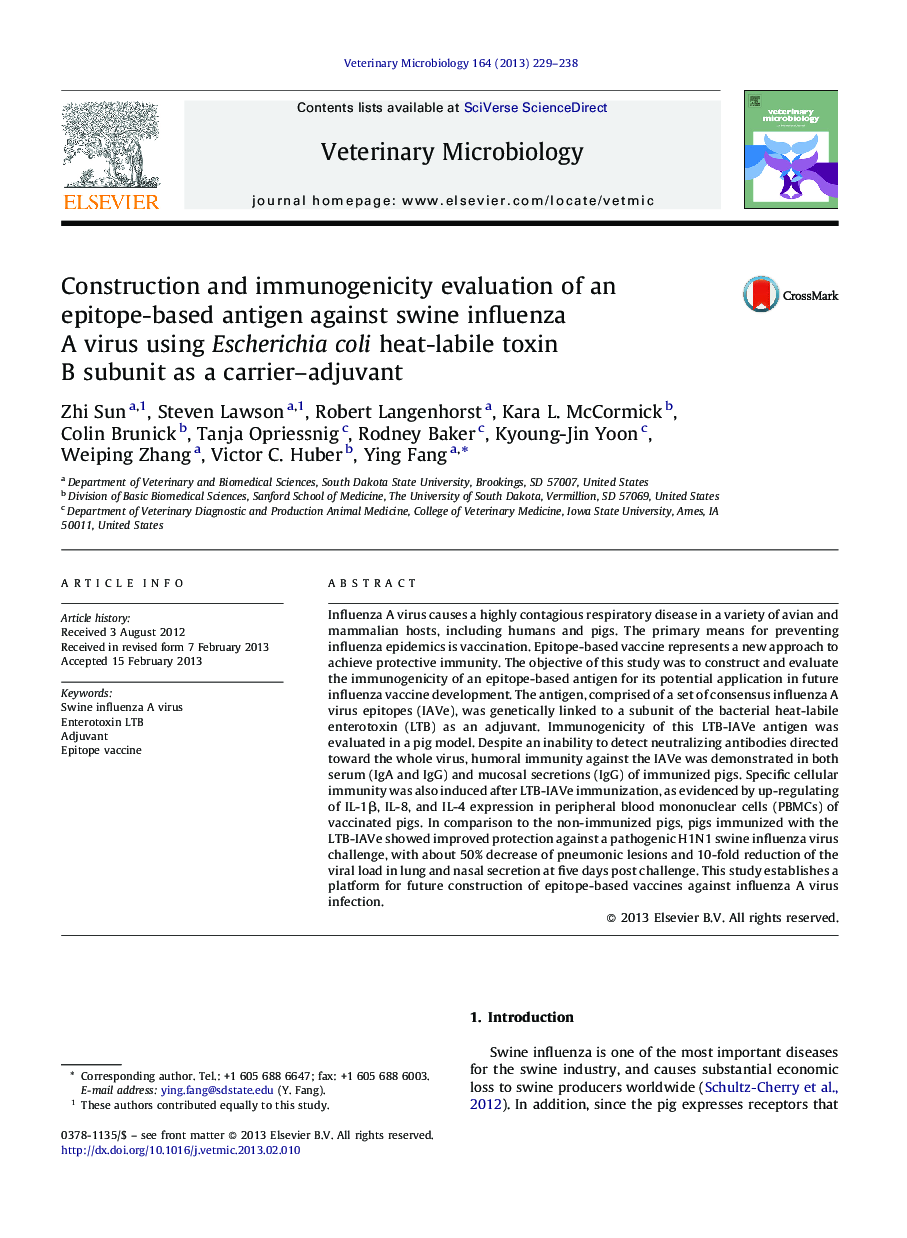| Article ID | Journal | Published Year | Pages | File Type |
|---|---|---|---|---|
| 5800888 | Veterinary Microbiology | 2013 | 10 Pages |
Influenza A virus causes a highly contagious respiratory disease in a variety of avian and mammalian hosts, including humans and pigs. The primary means for preventing influenza epidemics is vaccination. Epitope-based vaccine represents a new approach to achieve protective immunity. The objective of this study was to construct and evaluate the immunogenicity of an epitope-based antigen for its potential application in future influenza vaccine development. The antigen, comprised of a set of consensus influenza A virus epitopes (IAVe), was genetically linked to a subunit of the bacterial heat-labile enterotoxin (LTB) as an adjuvant. Immunogenicity of this LTB-IAVe antigen was evaluated in a pig model. Despite an inability to detect neutralizing antibodies directed toward the whole virus, humoral immunity against the IAVe was demonstrated in both serum (IgA and IgG) and mucosal secretions (IgG) of immunized pigs. Specific cellular immunity was also induced after LTB-IAVe immunization, as evidenced by up-regulating of IL-1β, IL-8, and IL-4 expression in peripheral blood mononuclear cells (PBMCs) of vaccinated pigs. In comparison to the non-immunized pigs, pigs immunized with the LTB-IAVe showed improved protection against a pathogenic H1N1 swine influenza virus challenge, with about 50% decrease of pneumonic lesions and 10-fold reduction of the viral load in lung and nasal secretion at five days post challenge. This study establishes a platform for future construction of epitope-based vaccines against influenza A virus infection.
